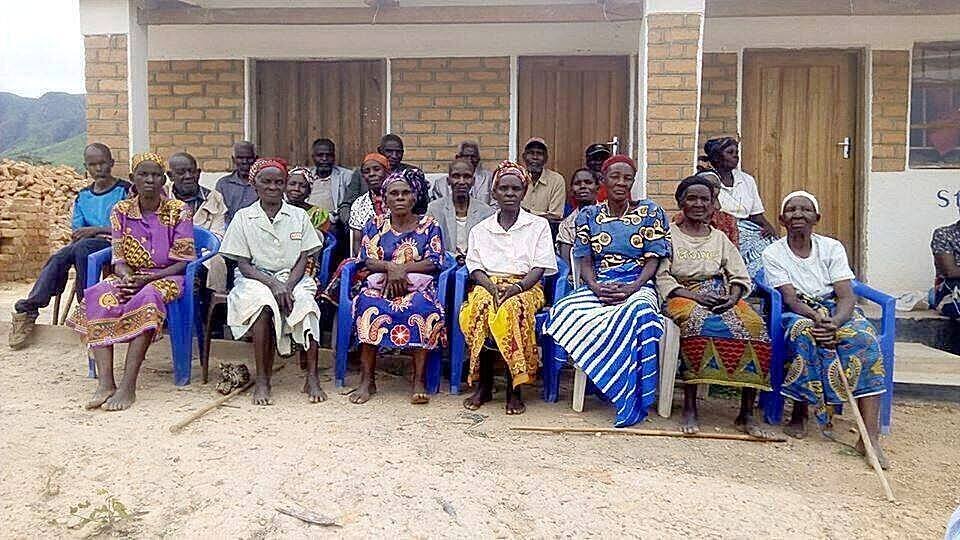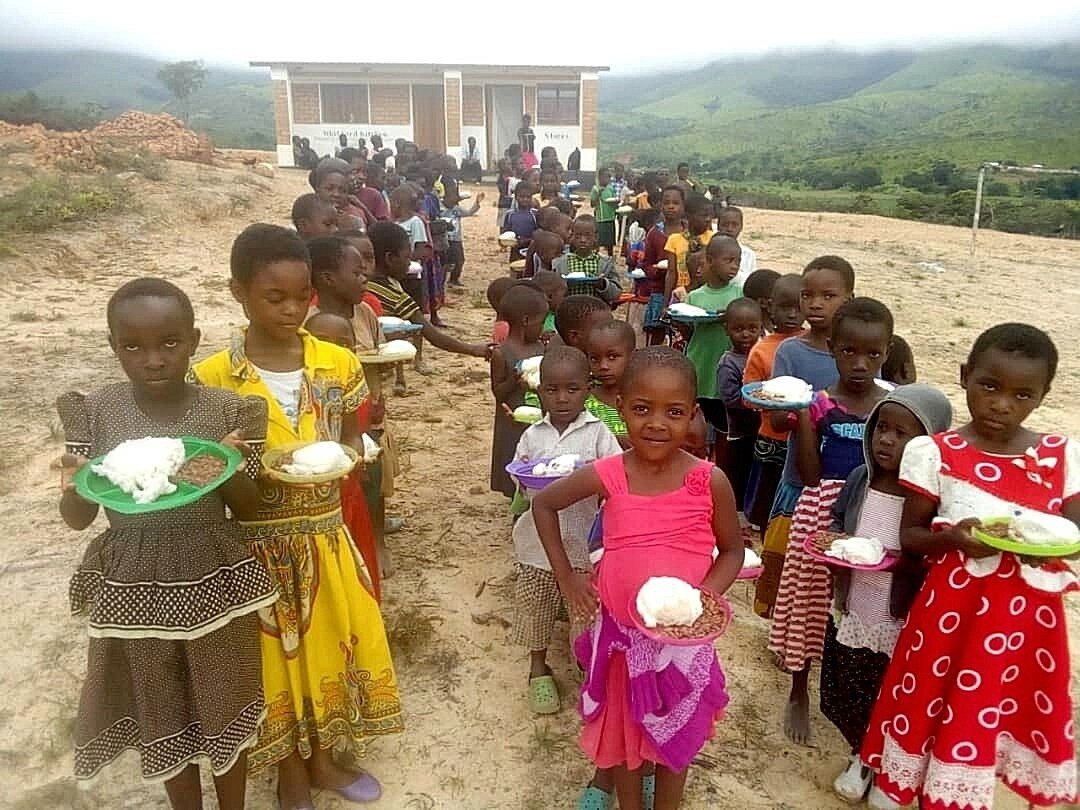Produce of Malawi
Malawi is home to some stunning landscapes, dominated by highs and lows: the Great Rift Valley and the vast Lake Malawi, the ninth largest lake in the world, running dramatically alongside the mountainous highlands, where peaks reach 10,000ft in places.
These highs and lows are analogous for the region as a whole. Malawi is one of the world’s poorest nations – an estimated 65% of its population lives below the poverty line – but its coffee industry, a legitimate cash crop in a significantly cash-strapped country, boasts thousands of smallholder farms scattered throughout its incredible altitudes, particularly Viphya and the Nyika Plateaux to the North.
Standing between 1,700 and 2,000 metres above sea level, close to Malawi’s Tanzanian border and the Songwe River, the Misuku coffee region grows naturally-canopied Arabica (largely Agaro and Geisha) that commands premium prices. It is Malawi’s principal coffee growing region, housing 48% of its farmers, and coffee from this area can be described as sweet, delicate, floral, with hints of liquorice and spice.
Here is some background about the Mzuzu Golden Fair Trade Coffee. “Sunshine in a Cup”
It is produced by the Mzuzu Coffee Planters Cooperative Union, a farmer owned organisation, currently with six primary cooperative societies on land in the high mountains in Northern Malawi. The Cooperative was formed in 2007, having been the Smallholder Coffee Farmers Trust since 1999, and comprises business centres which then form business zones which then join up to become the Primary Cooperative Societies which make up the Union.
There are approximately 3,000 growers and the whole Union is fairly structured to benefit growers and to achieve gender equality. For instance, if the Chair of one of the centres is a man, then the Vice Chair must be a woman. There is a Women in Coffee movement; about 25% of growers are women and there is a Coordinator for the women coffee farmers and youths.
Fair Trade Scotland are delighted that Joyce Juma-Phiri has joined their team as CEO.
Her words will resonate far and wide, helping to amplify the voices of the smallholder farmer & producer.
The goal of the Union is to improve the quality of life of its member farmers through promoting its coffee produced via excellent, sustainable production and processing technologies and to promote diversification at farmer, cooperative and union levels. So the Union runs its own commercial farm, the Mzuzu coffee den – coffee shop, restaurant and the first free wifi premises in Malawi (and Levison Mlambya, the Malawian Co-Founder of the William Stewart Foundation can attest to the excellence of the den) - and Mzuzu Coffee Suites – a stunning guest premises with conference facilities just outside Mzuzu. The ethos of the Union is that the communities and the farmers should be empowered and that they should have a decent life – the Union has, for example, enabled a hospital to be built in Misuku which benefits not only the growers but people from the surrounding areas who previously couldn’t afford travel to a hospital, as is the case in so much of rural Malawi.
On the left is Bernard Kaunda, the CEO and the Cooperative’s driving force with a great team working with him, and Christopher Gondwe, Quality & Processing Executive.
In 2018 the two gentlemen came to Scotland as part of a producer visit for Fairtrade Fortnight. The Mzuzu ‘green beans’ are sold to a UK commercial roaster who blends the beans for their own Fairtrade certified coffee.
It was during this visit that Bernard, CEO of Mzuzu Planters Cooperative Union met again with Eve, Fair Trade Scotland, having first met her on a previous visit to Scotland in 2006. The decision was taken for Fair Trade Scotland to partner with the Union.
The aim is to ‘empower farmers to roast their own coffee and rise above the abject poverty haunting the global coffee belt’ and to put an end to modern slavery around the world.
As it takes time to form strategic partnerships, the scene is now set to fulfil the ambition of Mzuzu Coffee Planters Cooperative Union to bring their own roasted coffee to the market.
Starfish Malawi want to help to raise the awareness of the current situation facing the Cooperative and helping them use the 9,000 bags that were printed for the launch, with a story from Mary included in the pack.
Have your own Mzuzu Golden Coffee – “ Sunshine in a Cup”
Starfish Malawi want to help to raise the awareness of the Mzuzu coffee which can now be purchased in the UK, by encouraging people to purchase bags of the coffee, taste the difference and tell others about it!
You will also be helping a small charity, the William Stewart Foundation, that is based close to the coffee region in the North of Malawi, who are doing very similar work to ourselves.
To place your order for as many 250 gram bags as you want, email Eve at Fair Trade Scotland eve.broadis@fairtradescotland.co.uk
The cost is £10 per bag plus postage costs. Enjoy this yourself and then encourage your church, workplace or local café to use Mzuzu coffee too!
Their work includes the The Margaret and Jean Stewart Resource Centre
The Resource Centre, built on a piece of land gifted by the Chiefs to the Foundation, was begun in April 2018. The land was cleared of rocks and vegetation, and the first build was latrine blocks, followed by the Whittard Kitchen. Sophie’s Skills Shed was then erected, with stores and an office. The Centre was opened in December 2018. In 2020 the Skills Shed was extended to encompass the Emma Buchanan Rainbow Library, named after a young girl who had always wanted to visit Malawi but never had the chance to go. Her memory and her name live on in Ibuluma.
The Centre, at the weekends particularly, is a hive of fun and activity, the epicentre of the children’s lives. When it was built, we visualised that there would be perhaps in excess of 200 children who would benefit. In fact, within a year, the numbers rose and greatly exceeded that speculative figure. Regularly there are 600-700 children, many of whom walk long distances across rough terrain.
They want to learn; they want to have fun; they want to be fed. That lunch, in so many cases, will be the only square meal of the week which they eat. If maize is in short supply, and/or the price is too high for ordinary families to afford the staple food, then they will go without – it’s as simple as that.
The Centre has become their place – their home from home. The children learn life skills in the Skills Shed and in the Foundation fields and gardens. They read books and play with toys; they especially like educational or construction toys. Part of their day is spent playing football, netball, skipping or on the swings. Or dancing, or marching, or playing Malawian games such as Chimbwi na Mbelere (The Hyena and the Sheep). At lunchtime, they eat their meal, in sittings, with the little ones going first, looked after in their lines by some of the older children whom Levison has made ‘captains’.
None of them wants to go home, ever. They have to be sent home so that they all reach safety before darkness descends. They love the place, and they love to learn. Theirs is the generation which will try their hardest to lift themselves and their fellows from poverty.
Have a look at what some of them see for their future.
And why shouldn’t they achieve their goals in life?
During school time, pre-school children, too, started to come to the Centre and Levison would bring out some games and footballs for them. But, thanks to a very generous family, a nursery was trialled with about 50 children and these little ones are also learning well and being fed too.
At the end of 2019, there was huge excitement when, for the first time ever, Ibuluma had lights. Electricity came to the Resource Centre. This has been liberating, for the people, for the children, for Levison and for the Foundation’s work. It was a very gratifying reward for the work which the Foundation has done because the electricity board electrified the Centre in recognition of what we do.
The Resource Centre is not just for the children, although they have had to take priority. It is for everyone. The able-bodied elderly folk of Ibuluma came to the Centre in 2019 and thoroughly enjoyed their day too. As time and resources allow, we hope to repeat those days for them. Elderly folk who are not able to travel have been visited on outreach and given gifts according to what there is in the stores.
The village now has clean drinking water which is so important for the children and families. Please read this story about Josephine, the little girl drinking from the tap
Clean drinking water for the village of Ibuluma - Josephine's Story
This is Josephine Nyondo, age 5. She and her friends have clean drinking water on tap for the very first time. They can turn the tap on and off when they need water. Everyone gathers round as they are excited to watch what’s happening. They have been watching the builders but now this part of the project is completed.
‘The children work together’. Taking turns to turn the tap for each other they wash hands and scoop up water with their hands to drink. These children are 3, 4 and 5 years old. Their lives are changing for the better. All children have the right to have clean drinking water, wherever they are in the world. Thanks to generous supporters that’s been achieved. Any child born from now on will never have to drink from the disease borne river. Life is changing in Ibuluma, Northern Malawi.





















